Photographs: Arko Datta/Reuters Trideep Lahkar and Manvendra Jha in New Delhi
A fast-growing economy fired up the real estate market after almost a year-and-a-half of property gloom, with prices touching the pre-crisis peak and companies announcing structures that will pierce the sky.

The property party would have been perfect had it not been for the service tax slapped on under-construction buildings and as expected, the burden was passed on to the buyer.
The Budget proposal meant that 25 per cent of the gross sale value of the property would be taxed and this resulted in a 2.5 per cent increase in the rates of houses under construction.
Prices, on an average, increased by 30 per cent across India, forcing the Reserve Bank of India to tighten the norms on lenders' exposure to the realty sector.
. . .
Realty back to pre-crisis peak in 2010
Image: Princess Park at BPTP Parklands, Faridabad.Photographs: Courtesy BPTP
The year also saw some of the developers getting embroiled in one controversy or another -- like Unitech in the 2G spectrum allocation scam, Emaar MGF in the CWG and Lavasa in the green norms violation case -- which made 2010 a not-so rosy year for them.

The robust economic growth, coupled with increased focus by developers on building affordable homes, helped the realty sector recover from the slowdown in demand, which was hit by the global economic recession of 2008.
"In 2010, the office and retail segments started with nervousness, but are ending it on a good note. However, the residential sector started nicely, but is also ending it nervously," JLL India chairman and country head Anuj Puri told PTI.
. . .
Realty back to pre-crisis peak in 2010
Image: Jaypee's Sea Court, Greater Noida.Photographs: Courtesy: Jaypee
"In Delhi and Mumbai, housing prices had fallen by about 25-30 per cent after the global meltdown in 2008.
The prices have again shot up and reached the 2008 peak level," Puri said, adding that the rise in other cities was 10-15 per cent.
The rentals for office and retail spaces, however, remained stable despite increase in volumes.
This was due to excess supply vis-a-vis demand.
With demand and prices improving compared with last year, over a dozen realty firms approached market regulator Securities Exchange Board of India to raise money through initial public offer, but bad market sentiments forced them to hold back their IPO plans even though they had the necessary approvals.
. . .Realty back to pre-crisis peak in 2010
Image: Unitech Heights, Greater Noida.A clutch of realty firms, including Emmar MGF, Lodha Developers, Sahara Prime City, Oberoi Realty, Ambience, BPTP, DB Realty, Raheja Universal and Nitesh Estates, filed papers with Securities and Exchange Board of India to raise funds through IPO.

But apart from Oberoi Realty, DB Realty and Prestige Estates, none of them has so far come out with an IPO.
The appetite for realty stocks was low, as the market sentiment got affected because of allegations faced by some of the developers.
While Unitech's name surfaced in the telecom scam, Emaar MGF's image took a beating after it was charged with delaying the CW Games village and deficiencies in its development, leading to the government ordering the confiscation of its bank guarantee of Rs 183 crore (Rs 1.83 billion) and then the developer moving the Delhi high court.
. . .
Realty back to pre-crisis peak in 2010
Image: Tata Housing residential complex at Thane, Greater Mumbai.The Adarsh Housing scam and loan for bribery scam contributed to the poor sentiments. Rising prices and scams made the RBI more cautious toward the realty sector and it asked banks to tighten their exposure not only to the developers, but also individual home buyers.

For example, the housing finance regulator National Housing Bank, which is a subsidiary of RBI, asked the lenders to give loans only up to 80 per cent of the value of property for home loans of more than Rs 20 lakhs (Rs 2 million).
Amidst these negatives, the year witnessed few big-ticket land deals.
Lodha Developers bagged a 22.5-acre plot in Wadala in Mumbai for Rs 4,053 crore (Rs 40.53 billion), making it the costliest land deal in the country, even as BPTP had to surrender its Rs 5,006 crore (Rs 50.06 billion), 95-acre plot in Noida.
. . .
Realty back to pre-crisis peak in 2010
Image: DLF Princeton Estate, Gurgaon.Parsvnath and IndiaBulls, too, clinched land parcels involving investments in the range of Rs 1,500-2,000 crore (Rs 15-20 billion) at various places across the country.

Taking a cue from global building marvels, developers announced some of the tallest structures in the country.
While DLF has planned to develop a 90-storey luxury housing complex in Mumbai, Lodha Developers said it will build a 117-storey tall residential tower, touted as the world's tallest housing complex, in the city.
With all such development work going on and robust demand from buyers to own a house, prices of residential projects are likely to firm up in the coming year.
However, Puri of JLLM cautioned that housing prices in Delhi-NCR and Mumbai have reached the peak level of 2008 and any further rise in the rates will hit demand.

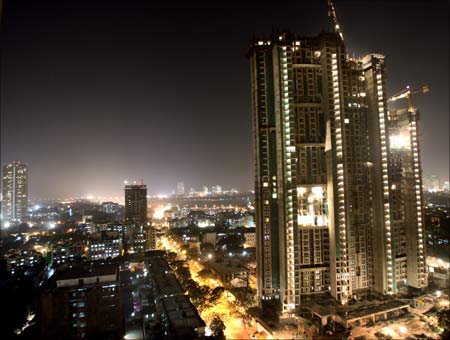
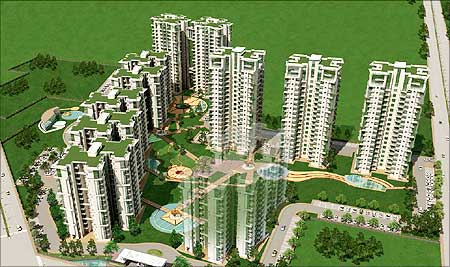
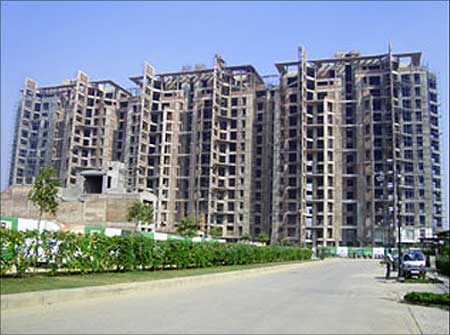
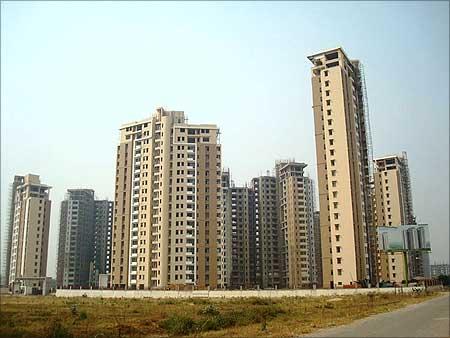
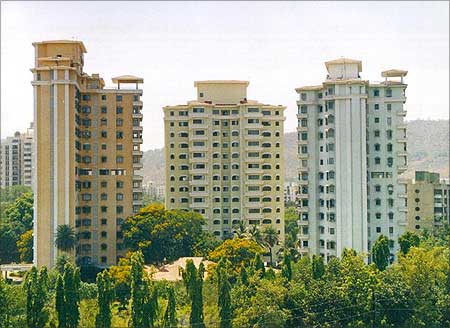
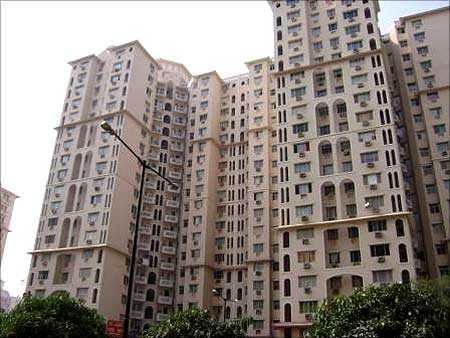
article